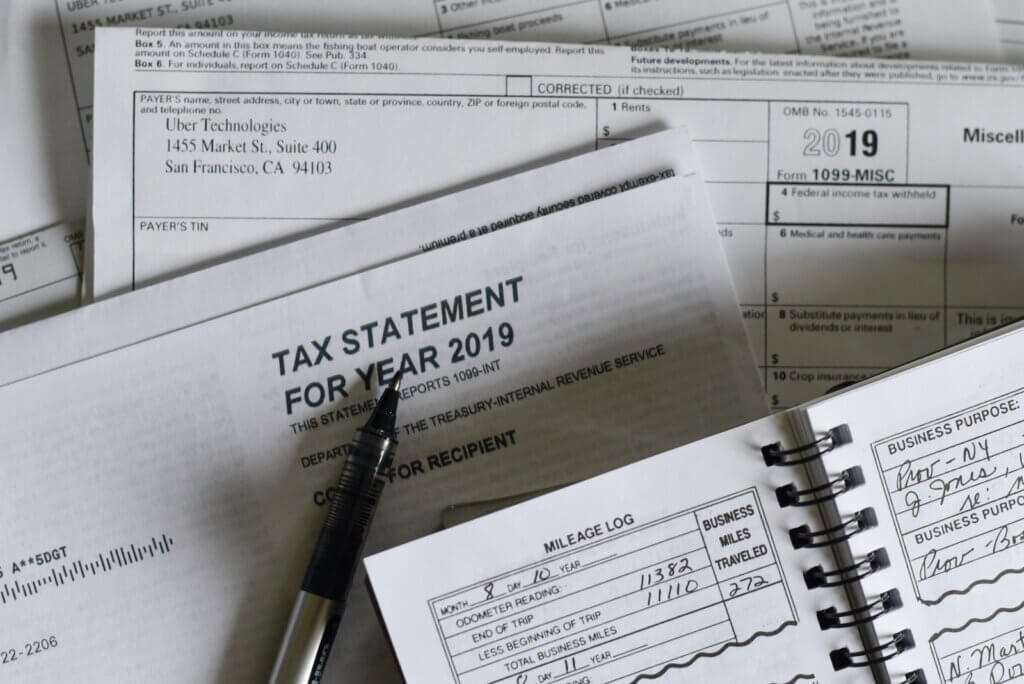Are you confused about San Diego sales tax? This guide covers all the bases, from and exemptions to laws and regulations, , payment, and audits. Our expert tips help you avoid penalties and ensure accurate calculation.
Overview of San Diego Sales Tax
San Diego sales tax is a type of consumption tax that is charged on the sale of goods and services in San Diego, California. The tax rate is determined by the state of California and the city of San Diego and is subject to change. The sales tax is collected by businesses and remitted to the state and the city on a regular basis.
What is Sales Tax?
Sales tax is a tax that is charged on the sale of goods and services. It is a consumption tax, meaning that it is only charged when a product is sold and consumed. The tax is usually a percentage of the sale price of the product or service and is paid by the consumer. The purpose of sales tax is to generate revenue for the government to fund public services and programs.
How is Sales Tax Collected?
Sales tax is collected by businesses that sell goods and services to consumers. Businesses are required to register with the state of California and the city of San Diego to collect and remit sales tax. When a business makes a sale, they add the appropriate sales tax rate to the sale price and collect the tax from the consumer. The business is then responsible for remitting the tax to the state and the city on a regular basis.
San Diego Sales Tax Rate
The San Diego sales tax rate is determined by the state of California and the city of San Diego. As of 2021, the sales tax rate in San Diego is 7.75%. This rate includes the state sales tax rate of 6.00% and the local tax rate of 1.75%. The local tax rate is used to fund various city services and programs. It is important to note that the sales tax rate in San Diego is subject to change and can vary based on the type of product or service being sold.
In summary, sales tax is a consumption tax that is charged on the sale of goods and services. It is collected by businesses and remitted to the state and the city on a regular basis. The sales tax rate in San Diego is currently 7.75%, including the state and local tax rates. Understanding the basics of San Diego sales tax is important for both businesses and consumers to ensure compliance with tax and regulations.
Exemptions from San Diego Sales Tax
Sales taxes can be a significant burden on consumers and businesses alike. Fortunately, the San Diego sales tax code offers for certain items, which can help reduce the overall cost of doing business. In this section, we’ll explore the types of items that are exempt from San Diego sales tax, who qualifies for these exemptions, and how to claim them.
What Items are Exempt from Sales Tax?
There are many items that are exempt from San Diego sales tax. Some of the most common items include:
- Food products that are intended for human consumption. This includes items like fruits, vegetables, meats, and dairy products.
- Prescription medicines and medical devices. These items are exempt from sales tax to help reduce the cost of healthcare.
- Clothing and footwear that are priced under a certain threshold. Currently, items that are priced under $110 are exempt from sales tax.
- Educational materials like textbooks and supplies. This exemption applies to materials that are used in primary and secondary schools, as well as colleges and universities.
- Agricultural items like seeds, fertilizers, and pesticides. These items are exempt to help support the agricultural industry in San Diego.
- Renewable energy equipment like solar panels and wind turbines. These items are exempt to encourage the use of clean energy sources.
Who Qualifies for Exemptions?
The qualifications for sales tax can vary depending on the item in question. In general, exemptions are available to businesses and individuals who meet certain criteria. For example, the exemption for food products applies to anyone who purchases food for human consumption. The exemption for prescription medicines and medical devices applies to anyone who has a valid prescription from a licensed healthcare provider.
The exemption for clothing and footwear applies to anyone who purchases items that are priced under $110. This exemption is particularly beneficial for low-income individuals and families who may struggle to afford basic necessities.
How to Claim Exemptions
To claim an exemption from San Diego sales tax, you’ll need to provide documentation that proves you qualify for the exemption. For example, if you’re purchasing food products, you’ll need to provide a receipt or invoice that shows the items you purchased. If you’re purchasing prescription medicines, you’ll need to provide a copy of your prescription.
In some cases, you may be able to claim exemptions automatically. For example, if you purchase clothing or footwear that is priced under $110, the exemption will be applied automatically at the point of sale.
San Diego Sales Tax Laws and Regulations
When it comes to San Diego sales tax, it’s important to understand the laws and regulations that govern it. While sales tax is a state tax, each city within California can have its own regulations and laws regarding it. In this section, we’ll take a look at California sales tax laws, San Diego sales tax regulations, and the penalties for non-compliance.
California Sales Tax Laws
California sales tax is a tax on the sale of tangible personal property in the state. This includes goods such as clothing, electronics, and furniture. However, certain items are exempt from sales tax, such as groceries, prescription drugs, and some medical devices.
In California, the sales tax rate is 7.25%. However, some cities and counties can add additional taxes on top of this rate. For example, in San Diego, the sales tax rate is 8.25%. This means that for every $100 of taxable goods sold in San Diego, the seller must collect $8.25 in sales tax.
It’s important to note that businesses that sell goods in California are required to have a seller’s permit, which allows them to collect sales tax from their customers. Failure to obtain a seller’s permit can result in penalties and fines.
San Diego Sales Tax Regulations
San Diego has its own set of regulations when it comes to sales tax. In addition to the state sales tax rate of 7.25%, San Diego adds an additional 1% for the county and 0.5% for transportation. This brings the total sales tax rate in San Diego to 8.25%.
San Diego also has specific regulations regarding sales tax . For example, sales of tangible personal property to the United States government or its agencies are exempt from sales tax. Additionally, sales of items used in the production of certain products, such as food or medicine, may also be exempt from sales tax.
Businesses in San Diego are required to register for a business tax certificate, which allows them to collect and remit sales tax to the city. Failure to obtain a business tax certificate can result in penalties and fines.
Penalties for Non-Compliance
Failure to comply with San Diego sales tax regulations can result in penalties and fines. For example, if a business fails to obtain a seller’s permit or business tax certificate, they can be fined up to $5,000 per offense. Additionally, if a business fails to collect or remit sales tax, they can be fined up to 10% of the tax due.
Business owners should also be aware that the California Department of Tax and Fee Administration can conduct audits to ensure compliance with sales tax regulations. During an audit, the department will review a business’s records and transactions to ensure that sales tax is being collected and remitted correctly. If a business is found to be non-compliant, they can face penalties and fines.
Calculating San Diego Sales Tax
Calculating sales tax can be a daunting task, especially for those who are not familiar with the process. In this section, we will explain how to calculate San Diego sales tax, provide tips for accurate , and introduce a San Diego sales tax calculator to make the process easier.
How to Calculate Sales Tax
The formula for calculating sales tax in San Diego is relatively simple. To calculate the sales tax, you will need to multiply the total amount of the purchase by the current sales tax rate. The sales tax rate in San Diego varies based on the location of the sale, as well as the type of product or service being sold.
For example, if you purchase an item in San Diego that costs $100 and the current sales tax rate is 8%, you will need to multiply $100 by 0.08 (or 8%) to get the sales tax amount. In this case, the sales tax would be $8, making the total cost of the purchase $108.
San Diego Sales Tax Calculator
If you want to avoid the hassle of manually calculating sales tax, you can use a San Diego sales tax calculator. There are several online tools available that allow you to input the purchase amount and automatically calculate the sales tax based on the current rate. This can save you time and ensure accurate calculation.
One such tool is the San Diego Sales Tax Calculator provided by the California State Board of Equalization. This calculator allows you to input the sale amount and location, and it will automatically calculate the sales tax based on the current rate. This tool is particularly useful for businesses that need to calculate sales tax for multiple transactions.
Tips for Accurate Calculation
While calculating sales tax may seem straightforward, there are several factors to consider to ensure accurate . Here are some tips to help you calculate San Diego sales tax correctly:
- Double-check the current sales tax rate: Sales tax can change frequently, so it’s important to confirm the current rate before making any calculations. You can check the current rate on the California Department of Tax and Fee Administration website.
- Understand local tax rates: In addition to the state sales tax rate, some cities and counties in San Diego may have their own local tax . Be sure to check the local tax rate for the location of the sale to ensure accurate calculation.
- Include shipping and handling fees: If you are charging sales tax on a purchase that includes shipping and handling fees, be sure to include these fees in the total amount of the sale before calculating the sales tax.
- Round up or down: When calculating sales tax, it’s important to round up or down to the nearest penny. This will ensure that the final amount is accurate and doesn’t result in over- or under-charging the customer.
By following these tips and using a San Diego sales tax calculator, you can ensure accurate calculation and avoid any potential errors or penalties.
Paying San Diego Sales Tax
As a business owner in San Diego, you are required to collect and remit sales tax to the state of California. Failure to do so can result in hefty fines and penalties. In this section, we will discuss when sales tax is due, methods, and the consequences of late payments.
When is Sales Tax Due?
Sales tax in San Diego is due on a quarterly basis. The due dates are as follows:
- April 30th for sales made from January 1st to March 31st
- July 31st for sales made from April 1st to June 30th
- October 31st for sales made from July 1st to September 30th
- January 31st for sales made from October 1st to December 31st
It is important to note that sales tax must be collected and remitted even if you have not yet received payment from your customers. If you are unsure about when your sales tax is due, you can refer to the California State Board of Equalization website for more information.
Payment Methods for Sales Tax
There are several ways to pay your sales tax in San Diego. The most common methods are:
- Online Payment: You can pay your sales tax online using the California Department of Tax and Fee Administration’s (CDTFA) website. This is the fastest and easiest way to pay your sales tax. You will need your sales tax account number and your bank account information to make a payment.
- Electronic Funds Transfer (EFT): You can also pay your sales tax using electronic funds transfer. This method requires you to set up an account with the CDTFA and link your bank account to the account. Once set up, you can make payments using your bank’s online bill pay or by scheduling automatic payments.
- Mail: If you prefer to pay by mail, you can do so by sending a check or money order to the CDTFA. Be sure to include your sales tax account number and the appropriate payment voucher.
Late Payment Fees and Penalties
If you fail to pay your sales tax on time, you will be subject to penalties and interest. The penalties for late payment are:
- 10% of the amount due if the payment is one to 10 days late
- 15% of the amount due if the payment is 11 to 15 days late
- 20% of the amount due if the payment is 16 days or more late
In addition to the penalties, you will also be charged interest on the unpaid balance. The interest rate is currently 5%.
To avoid late payment fees and penalties, it is important to stay organized and keep track of when your sales tax is due. Consider setting up automatic payments or setting reminders on your calendar to ensure that you never miss a deadline.
San Diego Sales Tax Audit
Are you worried about a potential sales tax audit in San Diego? It’s essential to understand the reasons behind an audit, what to expect during the process, and how to prepare for it. In this section, we’ll delve into each of these areas to help you feel more confident if you ever face an audit.
Reasons for an Audit
The California Department of Tax and Fee Administration (CDTFA) conducts audits to ensure businesses comply with sales and use tax laws. There are several reasons why a business might be selected for an audit, including:
- Random selection: Sometimes, businesses are chosen at random for an audit. This is to ensure that the CDTFA is effectively monitoring compliance across all industries.
- Suspicious activity: The CDTFA may investigate a business if there are indications of suspicious activity, such as an unusually low tax liability or a high volume of cash transactions.
- Industry-specific: Certain industries, such as restaurants, bars, and retail stores, are more likely to be audited due to the high volume of sales and cash transactions.
It’s important to note that being selected for an audit doesn’t necessarily mean that the CDTFA suspects wrongdoing. However, it’s still crucial to be prepared for the audit process.
What to Expect During an Audit
If your business is selected for an audit, you’ll receive a notification from the CDTFA. The auditor will arrange a time to visit your business and will typically provide you with a list of documents and records required for the audit.
During the audit, the auditor will review your sales and purchase records for a specific period, typically three years. They’ll also examine your exemption certificates, invoices, and other documentation to verify that you’ve collected the correct amount of sales tax and reported it accurately.
The auditor may also conduct interviews with you, your employees, and your customers to gather additional information. They’ll ask questions about your business practices, accounting procedures, and sales tax collection methods.
It’s important to be cooperative and transparent during the audit process. If you’re unsure about any aspects of the audit, don’t hesitate to ask the auditor for clarification.
How to Prepare for an Audit
While being audited can be stressful, there are several steps you can take to prepare for the process:
- Review your sales tax procedures: Ensure that you understand the sales tax laws and regulations relevant to your business. Review your procedures for collecting, reporting, and remitting sales tax to ensure they’re accurate and up-to-date.
- Organize your records: Gather all of the documentation and records required for the audit. This may include sales and purchase invoices, exemption certificates, bank statements, and tax returns.
- Train your staff: Ensure that your employees understand your sales tax procedures and are prepared to answer any questions the auditor may have.
- Seek professional advice: If you’re unsure about any aspects of the audit process, consider seeking professional advice from a tax attorney or other expert.
By taking these steps, you’ll be better prepared for an audit and can minimize the stress and disruption it may cause.
In conclusion, it’s essential to understand the reasons behind a sales tax audit in San Diego, what to expect during the process, and how to prepare for it. By being proactive and transparent, you can ensure that the audit goes smoothly and minimize any potential penalties or fines.














